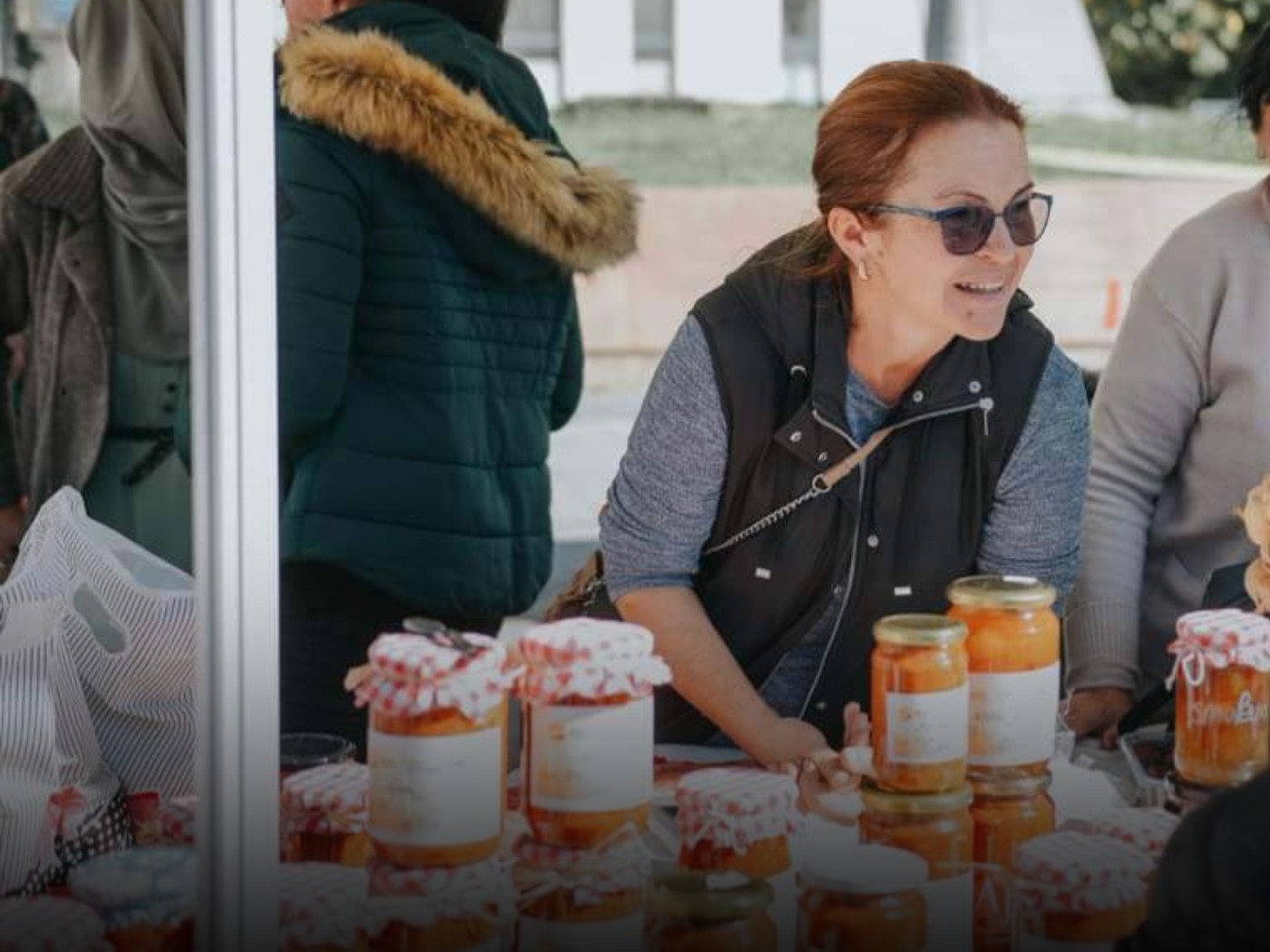October 15 marks the International Day of Rural Women. This year’s theme is Rural Women Cultivating Good Food for All, and it concerns the contribution of women to the production of quality food through agricultural activities. An inspirational story of a woman farmer benefiting from the Gender Budget Watchdog Network advocacy efforts comes from Vlasenica, Bosnia and Herzegovina. Olivera Stanišić is a farmer and a long-time member of the Women’s Association of Podrinje, and as of this year the president of the Association, as well as a member of Podrinje Women’s Network gathered under the auspices of Vive žene from Tuzla. Olivera shared her story with us in an interview and outlined the importance of gender responsive policies such as that one successfully advocated in her local community through a Gender Budget Watchdog Network grant.
When did you start working in agriculture?
OLIVERA STANIŠIĆ: I started my small business about fifteen years ago as a tourist accommodation rental offer because I had an extra living space. Agriculture followed after that, because, once again, I had a surplus of fruits and vegetables. That’s how I started processing and marketing products. For the last ten years, I have been putting special emphasis on ajvar, which is now my trademark, and in addition there are different kinds of juices, jams, sweets and salads.
How would you describe the state of women’s agriculture in your community?
OLIVERA STANIŠIĆ: The state of women’s agriculture is never great, but the women in my community manage to resist the challenges. They try to use all the opportunities provided and to be involved in all the processes related to their status. We can boast that as women farmers in Vlasenica Municipality, we now have the full support of the local administration, which is the result of the advocacy efforts of organizations from this region, in particular of the Gender Budget Watchdog Network members. Through my Association, we try to familiarize women with the rights, obligations and opportunities they have and should use. We also emphasize the importance of registering agricultural farms, and above all, that women should be the official owners of these farms or agribusinesses, because they are that, de facto, even when they are not registered as such.
The Vlasenica Municipality recently adopted a new Rulebook on the allocation of funds for agriculture, does it contribute to improving the status of women farmers?
OLIVERA STANIŠIĆ: By adopting the Rulebook, the Municipality of Vlasenica only confirmed and made official the efforts and modes of supporting women engaged in agriculture and entrepreneurship. All projects and public calls at the level of the Municipality, as well as those the Municipality participates in, now give priority to women, as owners of agricultural farms, women entrepreneurs up to 35 years of age, mothers with more than one child, and marginalized women. This really contributes to a gender-responsive environment, but also shows how advocacy for better and more inclusive policies actually has an effect.
How important is agriculture for the development of the local community and society?
OLIVERA STANIŠIĆ: As a woman who is engaged in agriculture and agricultural production, but also a woman who lives in a rural area with most opportunities lying in tourism and agriculture, I think that agriculture is high on the scale of importance for local development. It might even be the most important. Agriculture makes us think of nature and food, which present the basis of each community. The COVID-19 pandemic made us quite aware of the importance of domestic production and brought us closer to agriculture, nature and healthy food, but also closer to understanding that resilience lies in and relies on local communities, domestic production, and domestic consumption.
The successful advocacy for more inclusive and gender-responsive policies in Vlasenica Municipality was conducted as a part of the “Increasing the Accountability of Local Governments for Gender Equality of Rural Women” project supported through the GBWN sub-granting in Bosnia and Herzegovina and implemented by UŽ Maja from Bratunac.
Supported by Austrian Development Agency and Sida-The Swedish International Development Cooperation Agency


